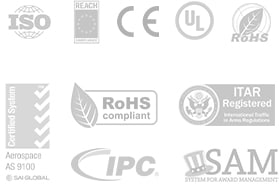PCB contract manufacturing has become an increasingly popular option for companies looking to outsource their printed circuit board assembly needs. This process involves hiring a third-party manufacturer to handle the design, fabrication, and assembly of PCBs according to the client’s specifications. By outsourcing this process, companies can save time and money while still ensuring high-quality results.
One of the primary benefits of PCB contract manufacturing is the ability to tap into the expertise of experienced professionals. These manufacturers have extensive knowledge of PCB design and assembly and can provide valuable guidance and support throughout the process. Additionally, they have access to the latest equipment and technology, which allows them to produce high-quality PCBs quickly and efficiently. This can be especially beneficial for companies that lack the resources or expertise to handle PCB assembly in-house.
Overall, PCB contract manufacturing offers a cost-effective and efficient solution for companies looking to outsource their PCB assembly needs. By partnering with an experienced manufacturer, companies can ensure that their PCBs are produced to the highest standards while also freeing up valuable resources to focus on other areas of the business.
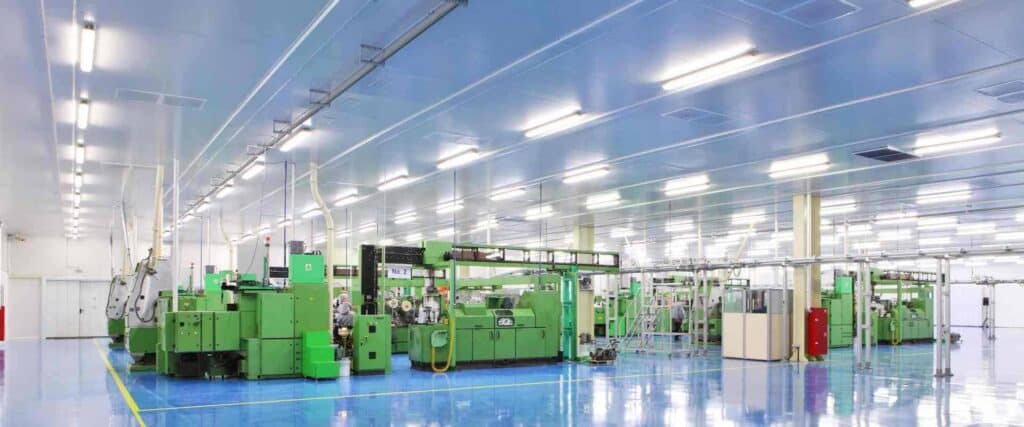
Benefits of PCB Contract Manufacturing
When it comes to PCB manufacturing, companies have two options: in-house manufacturing or contract manufacturing. While in-house manufacturing may seem like the logical choice, there are many benefits to outsourcing PCB manufacturing to a contract manufacturer. Here are some of the key advantages of PCB contract manufacturing:
Cost Savings
One of the most significant benefits of PCB contract manufacturing is cost savings. Contract manufacturers have the expertise and experience to optimize the manufacturing process, reducing costs and increasing efficiency. This allows them to produce high-quality PCBs at a lower cost than in-house manufacturing. Additionally, contract manufacturers have established relationships with suppliers, allowing them to purchase materials at a lower cost.
Expertise and Experience
Another advantage of PCB contract manufacturing is the expertise and experience that contract manufacturers bring to the table. Contract manufacturers specialize in PCB manufacturing, and they have the knowledge and skills to produce high-quality PCBs that meet the requirements of their clients. They also have experience working with a variety of industries and applications, giving them a broad understanding of the unique needs of different clients.
Quality Control
Quality control is crucial in PCB manufacturing. Contract manufacturers have strict quality control processes in place to ensure that every PCB produced meets the required specifications. They use advanced testing equipment and techniques to detect defects and ensure that the PCBs are functioning correctly. Contract manufacturers also have a team of experienced technicians who can troubleshoot any issues that arise during the manufacturing process.
In conclusion, PCB contract manufacturing offers many benefits, including cost savings, expertise and experience, and quality control. By outsourcing PCB manufacturing to a contract manufacturer, companies can focus on their core competencies while ensuring that they receive high-quality PCBs that meet their specific requirements.
Choosing a PCB Contract Manufacturer
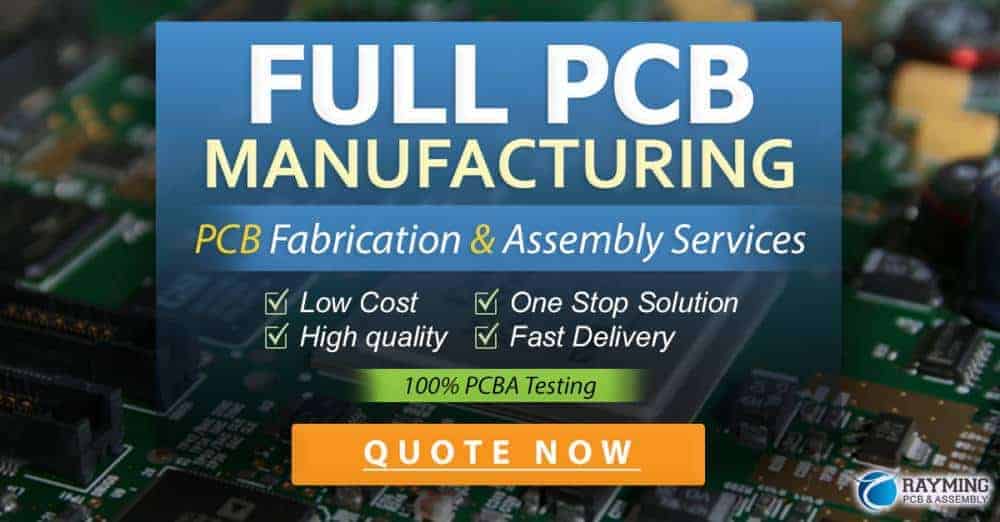
When it comes to choosing a PCB contract manufacturer, there are several factors that must be considered. Here are three key areas to focus on:
Capabilities and Services Offered
It’s important to choose a PCB contract manufacturer that has the capabilities and services that align with your needs. Some important things to consider include:
- Types of PCBs produced (e.g. single-sided, double-sided, multi-layer, flexible, rigid-flex)
- Materials used (e.g. FR-4, polyimide, Rogers, ceramic)
- Assembly services offered (e.g. surface mount technology, through-hole, mixed technology)
- Additional services offered (e.g. testing, design, prototyping, supply chain management)
Make sure to ask the manufacturer about their capabilities and services to ensure they can meet your specific requirements.
Location and Logistics
When choosing a PCB contract manufacturer, location and logistics are important factors to consider. Some things to keep in mind include:
- Proximity to your location
- Shipping options and costs
- Lead times and turnaround times
- Quality control measures and certifications
Choosing a manufacturer that is located nearby can help reduce shipping costs and lead times. However, it’s also important to consider other factors such as quality control measures and certifications to ensure that the manufacturer can meet your standards.
Reputation and References
Finally, it’s important to choose a PCB contract manufacturer with a good reputation and positive references. Some things to look for include:
- Online reviews and ratings
- Testimonials from past clients
- Industry certifications and awards
- Length of time in business
Take the time to research the manufacturer’s reputation and ask for references to ensure that they have a track record of delivering high-quality products and services.
In conclusion, choosing the right PCB contract manufacturer is crucial to the success of your project. By considering the capabilities and services offered, location and logistics, and reputation and references, you can make an informed decision and ensure that your project is in good hands.
PCB Contract Manufacturing Process
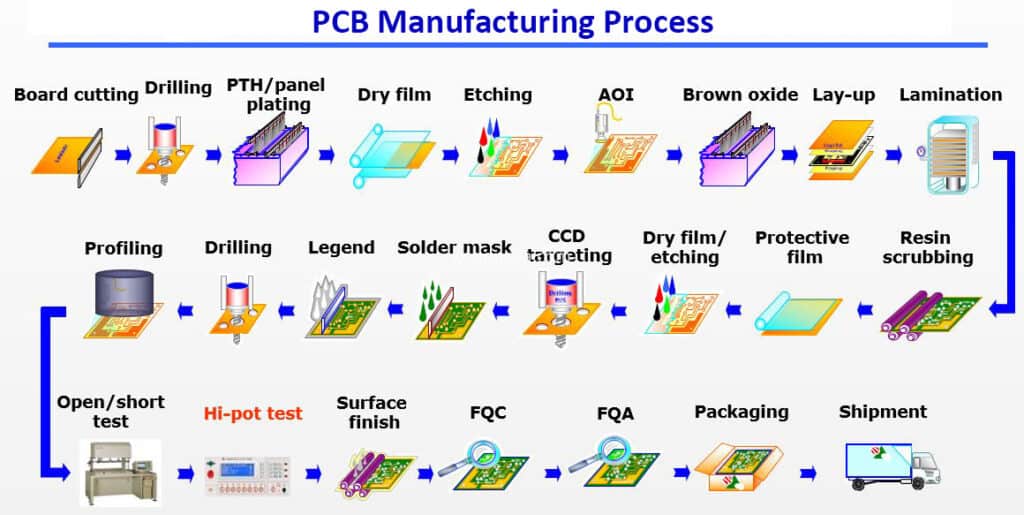
Design and Engineering
The design and engineering phase is the first step in the PCB contract manufacturing process. During this phase, the manufacturer works closely with the client to understand their requirements and specifications. The manufacturer then creates a design that meets the client’s needs and ensures that the design is optimized for manufacturability. This phase may include schematic capture, PCB layout, and design verification.
Prototyping
Once the design is finalized, the manufacturer creates a prototype of the PCB. This prototype is used to test the design and ensure that it meets the client’s requirements. The prototype may be created using a variety of techniques, such as hand assembly or automated assembly. The manufacturer may also perform testing and validation on the prototype to ensure that it meets industry standards.
Production
Once the prototype has been approved, the manufacturer begins production of the PCB. This phase involves the creation of a large number of PCBs, typically using automated assembly techniques. The manufacturer may also perform testing and quality control during this phase to ensure that the PCBs meet the required specifications.
Assembly
The final step in the PCB contract manufacturing process is assembly. During this phase, the PCBs are assembled into a final product, such as a computer or electronic device. The manufacturer may also perform testing and quality control during this phase to ensure that the final product meets the client’s requirements.
Overall, the PCB contract manufacturing process is a complex and important process that requires a high level of expertise and attention to detail. By working with a reputable and experienced manufacturer, clients can ensure that their PCBs are manufactured to the highest standards of quality and reliability.
PCB Contract Manufacturing vs In-House Manufacturing
When it comes to producing printed circuit boards (PCBs), there are two main options: contract manufacturing and in-house manufacturing. Each approach has its own advantages and disadvantages, and choosing the right one for your business depends on a variety of factors.
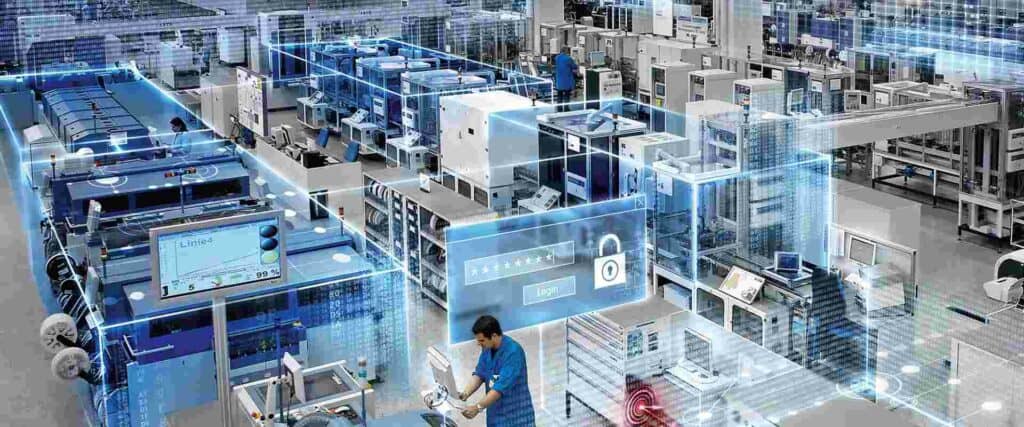
Cost Comparison
One of the biggest advantages of contract manufacturing is cost. PCB contract manufacturers can leverage economies of scale to produce boards at a lower cost than most in-house operations. This is particularly true for small and medium-sized businesses that may not have the resources to invest in expensive equipment and facilities. Additionally, contract manufacturers can often source components at a lower cost due to their relationships with suppliers.
In-house manufacturing, on the other hand, can be more expensive upfront. Businesses need to invest in equipment, facilities, and personnel to produce PCBs. However, over time, in-house manufacturing may become more cost-effective, especially if the business is producing a high volume of boards.
Quality Comparison
When it comes to quality, both contract manufacturing and in-house manufacturing have their pros and cons. Contract manufacturers often have more experience and expertise in producing PCBs, which can result in higher quality products. Additionally, they may have access to more advanced equipment and technology than most in-house operations.
However, in-house manufacturing gives businesses more control over the quality of their products. They can oversee the entire production process and make adjustments as needed to ensure that the final product meets their standards. Additionally, in-house manufacturers have more flexibility to make changes to their production process as they see fit, without having to rely on a third-party.
Time-to-Market Comparison
Finally, time-to-market is an important consideration when choosing between contract manufacturing and in-house manufacturing. Contract manufacturers can often produce PCBs more quickly than in-house operations, thanks to their expertise and access to advanced equipment. Additionally, they can often source components more quickly than businesses that are sourcing components on their own.
However, in-house manufacturing gives businesses more control over their production schedule. They can prioritize certain projects over others and make changes to their production process as needed to meet deadlines. Additionally, in-house manufacturers don’t have to worry about delays caused by third-party suppliers.
In conclusion, both PCB contract manufacturing and in-house manufacturing have their advantages and disadvantages. Choosing the right approach for your business depends on a variety of factors, including cost, quality, and time-to-market.

